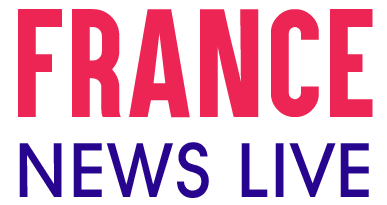Nice Terrorist Attack Trial Opens to Empty Seats and Desperate Hope

Issuance of:
The first week of the trial of eight people charged in connection with the 2016 Bastille Day massacre in the southern French city of Nice remains absent. rice field. Many victims’ families have refused to make his 700-kilometer trip to the Paris courts.
On the night of July 14, 2016, Mohammed Rafayeji Bourel deliberately drove his truck into the crowd watching the Bastille Day fireworks display on the Promenade des Anglais in the southern French city of Nice.
He killed 86 people and injured hundreds before security forces shot him dead at the steering wheel of his car.
Two days after the massacre, the Islamic State terrorist group claimed responsibility for the murders, saying that Boukhrel “acted as a soldier of Caliphat”.
However, he left no testimony or personal message linking his actions to the IS crusade, as was the case, for example, with the perpetrators who died in the Paris attacks in November 2015.
Investigators were unable to establish a link between the attackers and the jihadist organization that controlled swaths of Iraq and Syria at the time.
Bouhlel was clearly mentally ill.
His wife had reported him to police several times for extreme marital abuse. She told investigators he was a “crazy, violence-loving sexual obsession” .
“He ate pork, drank alcohol, didn’t observe Ramadan. He didn’t believe in anything.
“One time, when my daughter was sick and he noticed that I was praying, he urinated on me.
“He was a monster.”
8 accomplices
The monster has not been brought to justice.
Eight suspects are alleged accomplices who have been charged with failing to denounce the attack, providing weapons, or otherwise abetting the criminal act.
Only three people have been charged with terrorism. The rest are being tried as common criminals.
If found guilty, he faces a prison sentence of five to 20 years.
Use of video evidence
The unspeakable progress of the truck driven by Mohamed Lahouaiej Bouhlel was captured by police security camera batteries lining Nice’s seafront.
A court this week debated whether the display of these video images was appropriate. Some families say they are in favor of it, but others are absolutely against it.
The precedent for both positions is established by the recent French litigation. At Charlie Hebdo’s trial, crime scene images were released in court, surprising some attendees.
Jean-Louis Périès, who presided over the trial in November 2015, allowed the release of only a handful of photos taken by police technical staff at the Bataclan concert hall where 90 people died, making the case extremely harsh. took a cautious stance on
Nice Court President Laurent Rabiot said he would make decisions based on the truth and the image’s usefulness in establishing the defendant’s guilt or innocence.
He also needs to ensure that video evidence helps bereaved families and surviving victims recover from trauma.
conflict of interest
Much of this first week of hearings was dominated by the so-called party citizencivil plaintiffs, direct and indirect victims of attacks, are entitled to compensation and, if necessary, to court.
On that fateful night, 30,000 people flocked to the beaches of Nice. Hundreds have already registered as civil plaintiffs. The Chief Justice asked for restraint in choosing who would actually speak.
Six harrowing weeks of November 2015 trial Citizens involved. The person I spoke to said exercise helped. Many silent victims said they learned important details about the last moments of their deceased loved ones.
The extent to which the exercise of justice as compensation for victims conflicts with the defendant’s right to a fair trial remains to be determined.
https://www.rfi.fr/en/france/20220910-nice-terror-attack-trial-opens-to-empty-seats-and-forlorn-hopes Nice Terrorist Attack Trial Opens to Empty Seats and Desperate Hope




